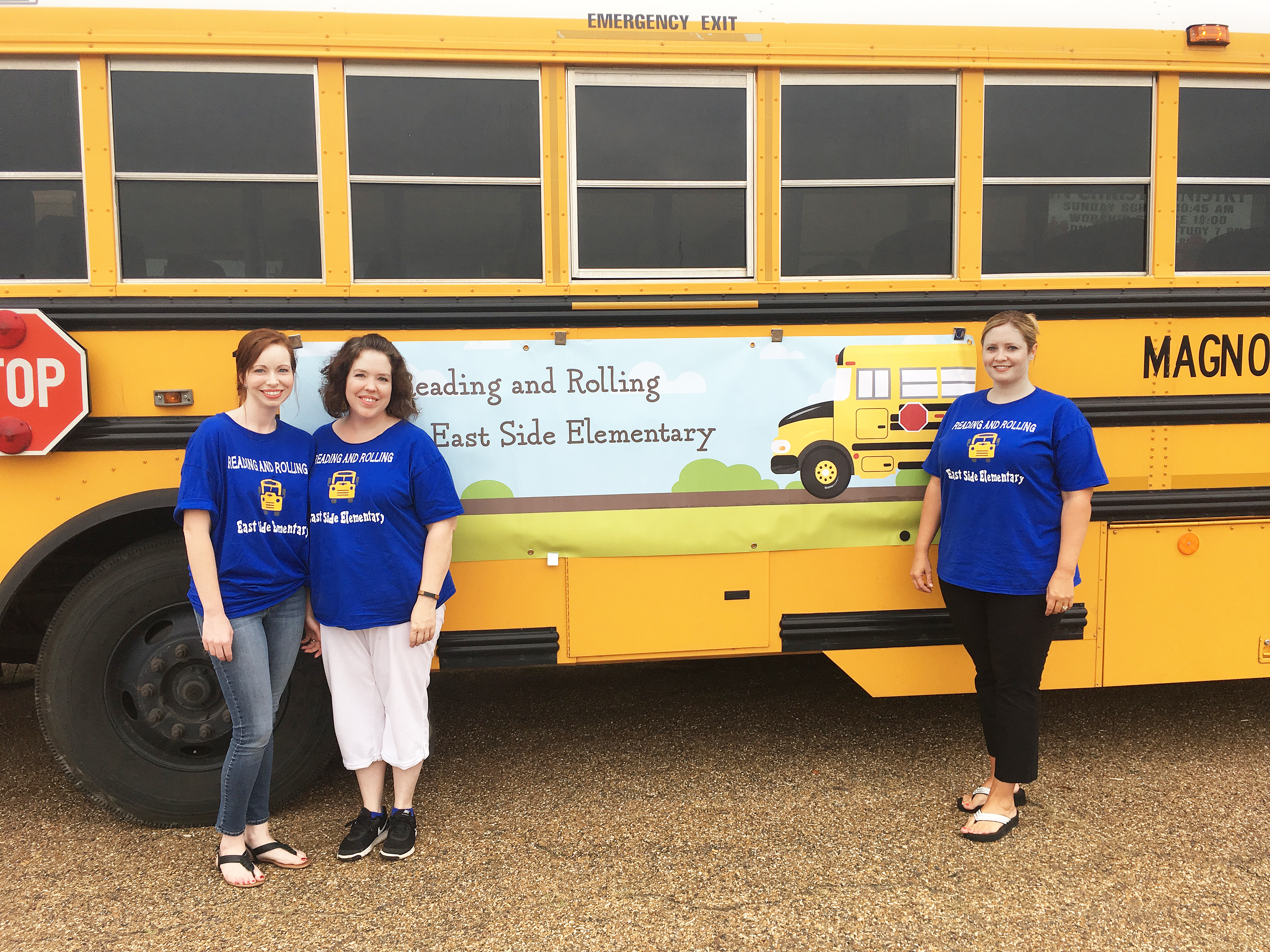Arkansas Community Foundation empowering nonprofits to increase grade-level reading across the state
March 16-22, 2020
By Victoria Mays
Statewide efforts have pushed third grade reading proficiency up 38 percent
With $440 million in assets, the Arkansas Community Foundation (ARCF) continues to help Arkansans promote smart giving to improve communities.
Since 1976, the Little Rock nonprofit empowerment organization has provided more than $261 million in grants through partnering with thousands of Arkansans and charities. A statewide foundation working in all 75 counties, they donate $20 million to 30 million annually in order to improve communities across the state.
Today, ARCF has 28 offices around the state that each have an advisory board and staff members. ARCF realizes that, “It’s important for the people who live in those communities, love those communities, and plan to die in those communities are the ones making the decisions,” said Heather Larkin, president and CEO of the foundation.
ARCF has donor and foundation-led giving that helps them to engage people, connect resources, and inspire solutions in Arkansas communities. “We work with people to give away money. Arkansans are some of the most generous in the country. Everyone wants to give the best way they can with the greatest impact. We help them do that,” added Larkin.
As the largest grant maker in Arkansas, the foundation has helped more nonprofits than any other group in the state to help communities tackle their challenges and meet their opportunities.
ARCF develops their initiatives and grant making around four pillars: families, education, health and community. “Our pillars are broad. We are not an education, health or arts foundation. We are a community foundation,” said Larkin. “Those four pillars are what we build our communities on.”
In order to measure where Arkansas currently stands and help provide a compass for communities, ARCF developed Aspire Arkansas, an indicator’s report. Aspire Arkansas is organized by county and the ARCF’s four pillars so that people can see what’s going on in their communities. Some indicators include access to quality seats for infants and toddlers, Grade 3 reading, student drug usage, people living in poverty, and access to financial services.
“Roughly four years ago, the Hot Springs Area Community Foundation started looking at ARCF’s indicators and noticed their community suffered with a low high school graduation rate. A group of local leaders convened, gathered information and discovered that they were losing their students in the eighth grade.,” said Larkin. “They rallied with teachers to figure out how their community was going to reach high-risk seventh and eighth grade students in order to stop the tide of dropouts.
“The Hot Springs community needed roughly $10,000 a year for a couple of years to implement their solutions. ARCF made grants to the school and the school developed a program they knew would work and started to focus on increasing the number of high school graduates,” continued Larkin, adding that Hot Springs is one of many communities that have been able to make an impact by partnering with ARCF.
As a statewide organization, ARCF is focusing on increasing grade level reading across the state. A few years ago, ARCF discovered that 33% of Arkansas third graders could read at grade level.
“If you cannot read at grade level by third grade, your chances of succeeding in school and graduating from high school decreases tremendously. If you do not graduate from high school, your chance of living in poverty increases significantly. Your chances of spending time in prison increases,” said Larkin. Though those numbers are not representative of individuals and doesn’t mean every individual is doomed to those outcomes, statistically, the numbers stack up very poorly if you do not read at grade level by third grade, she said.
“When we are talking about poverty and decreasing crime rates, how do you fix that? We backtrack and say we can’t fix all of that, but we can teach third graders to read,” said the ARC chief executive.
In one instance, ARCF recognized the momentum Angela Duran was achieving with the Arkansas Campaign for Grade-Level Reading (AR-GLR) in Little Rock and deployed their networks to assist the statewide initiative. The AR-GLR program was launched in 2011 to move the needle on education outcomes in Arkansas by focusing on third grade reading proficiency.
ARCF educated themselves first and all parties involved to truly understand what it meant for only 33% of Arkansas students to read at grade level. After determining the level of funding, they wanted to deploy on the state level, local offices and affiliates started deploying foundation-directed money. Donors then started to recognize the value they could make towards grade-level reading.
“It is not just because of the community foundation. The Arkansas Campaign for Grade-Level Reading, Governor Asa Hutchinson and the education system are doing the work,” said Larkin. “The latest indicators have shown an increase in the number of students reading at grade-level.”
According to Aspire Arkansas, the third-grade reading proficiency grew to 35% in 2016 and as of 2019 has increased to 38%.
Meanwhile, in order to promote smart giving among individuals and organizations that are wanting to give back, ARCF also launched the Arkansas Nonprofit Directory in December 2019. The directory is comprised of people and charitable organizations who are working to address the most pressing needs and issues in Arkansas communities.
The ARCF database is powered through GuideStar by Candid and nonprofits can be searched by county, issue area or size. It is a free platform and nonprofits can create profiles and share up-to-date information with prospective donors and community members.
When donors look at the profiles, they can view financial reports, a list of board members, program descriptions, metrics and goals of a nonprofit. Donors and community members can now rest assured that the money their contributing to nonprofits is being spent wisely.
(Photos provided)




